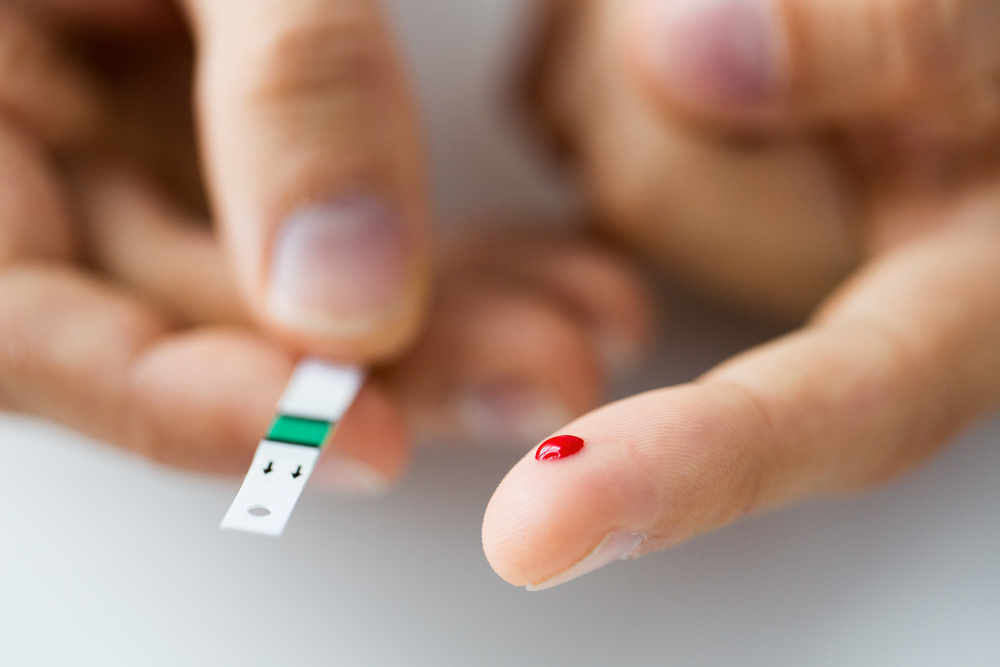
Mayo Clinic researchers have identified a gene called “UCP-1” that may predict the development of pancreatic cancer in people with Type 2 diabetes. Their findings are published in Gastroenterology.
“Developing strategies for the early detection of pancreatic cancer in people without symptoms is critical for improving survival,” says Suresh Chari, M.D., a Mayo Clinic gastroenterologist and senior author of the study.
For this study, Dr. Chari and his colleagues studied a population-based cohort of patients with pancreatic cancer and matched controls. Researchers studied changes in patients’ fasting blood glucose, body weight and blood lipids over a five-year period prior to their pancreatic cancer diagnosis. They also reviewed serial CT scans completed over time for other indications prior to their diagnosis.
The review of CT these scans helped researchers identify changes in patients’ subcutaneous fat, visceral fat and muscle over time. Researchers found that metabolic changes in patients with pancreatic cancer started 36 months prior to their cancer diagnosis, along with a rise in blood glucose. They also found that at 18 months prior to a pancreatic cancer diagnosis, patients experienced weight loss and a decrease in blood lipids, which included triglycerides, total cholesterol and low-density cholesterol.
“We observed [those] subcutaneous fat levels start decreasing approximately 18 months prior to a pancreatic cancer diagnosis, and coincide with a decrease in body weight and lipids,” says Dr. Chari. “Visceral fat and muscle decreased in the last six months prior to a pancreatic cancer diagnosis and coincided with the development of advanced cancer symptoms.”
Dr. Chari says the decrease in fat and lipids 18 months prior to a pancreatic diagnosis were reminiscent of the effects of browning of white adipose tissue, a phenomenon found in other cancers. “Brown fat generates body heat, a phenomenon especially prominent in newborn babies but much less so in adults,” says Dr. Chari.
Dr. Chari says a specific marker of brown fat is an uncoupling protein called UCP-1. “White fat can be turned brown by turning on certain ‘browning’ genes, including, UCP-1,” he says. “We hypothesized that pancreatic cancer causes browning of subcutaneous fat, and we confirmed our hypothesis in animal, experimental and human studies.”
Based on their findings Dr. Chari and his colleagues identified three distinct metabolic phases prior to a diagnosis of pancreatic cancer. Each phase is characterized by the onset of a new metabolic change:
Phase I
This phase, at 36 to18 months, is characterized by rise in blood glucose levels.
Phase II
This phase, at eight to six months, is characterized by decreases in lipids and weight, browning of subcutaneous fat and a rise in body temperature.
Phase III
This phase, at six to zero months, is characterized by a further rise in blood glucose levels and body temperature, along with a decrease in lipids; weight; and soft tissues that include subcutaneous fat, visceral fat and muscle.
“Our study has important implications for the early detection of pancreatic cancer,” says Dr. Chari. “Along with supporting data from animal and experimental studies, we were able to show that UCP-1 gene levels are markedly increased in patients with pancreatic cancer, compared to controls. We believe UCP-1 can potentially be used as a biomarker to predict pancreatic cancer in high-risk groups, such as patients with new-onset or long-standing diabetes who are unintentionally losing weight.”
Dr. Chari’s previous research focused on studying patients with new-onset diabetes as a high-risk group for developing pancreatic cancer. As part of this work, Dr. Chari and his colleagues developed and validated a score called Enriching New-Onset Diabetes for Pancreatic Cancer or ENDPAC that stratifies the risk of developing pancreatic among patients with new-onset diabetes.
Filed Under: Drug Discovery




